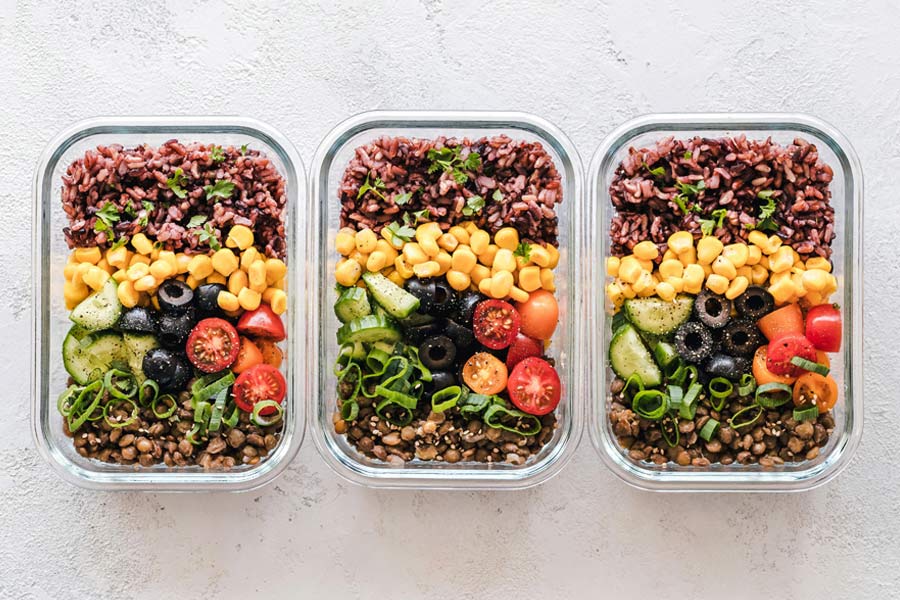As we settle into May, with the days warming up and routines shifting, it’s a good time to check in on the basics that really matter for long-term health. This week, we’re diving into a few key areas that have been making headlines again: fibre intake, ultra-processed foods, and how your diet might be affecting your brain (especially relevant with exam season in full swing).
Let’s start with something on fibre that genuinely shocked us.
Falling Short on Fibre and Why That Matters
A recent review found that a staggering 90% of us aren’t eating enough fibre. This is concerning because fibre is critical in supporting gut health, digestion, blood sugar balance, and even immunity. It’s also strongly linked to a lower risk of cardiovascular disease, stroke, type 2 diabetes, and bowel cancer.
Fibre isn’t hard to find. It’s in most fruits and vegetables, as well as wholegrains, legumes, nuts, and seeds. Yet many modern diets, especially those high in processed foods, fall drastically short. Upping your fibre is one of the simplest, most impactful ways to protect your long-term health.
Here are some fibre-rich foods to boost your intake:
- Chia seeds – A tiny seed with a huge fibre hit. Add to smoothies, porridge or yoghurt.
- Flaxseeds (linseeds) – Ground flax offers fibre plus plant-based omega-3.
- Avocados – Full of fibre and healthy fats. Great on toast or in salads.
- Raspberries – One of the highest-fibre fruits. Fresh or frozen, work well.
- Lentils, beans, chickpeas – Budget-friendly, high-fibre staples for soups, stews, curries and salads.
- Oats – Great for breakfast and a source of beta-glucan, a heart-friendly fibre.
- Broccoli, carrots, spinach – Aim for variety and colour, and half fill your plate each meal time.
And a top tip from one of our readers, Jenny, who said:
“A tip for you about lentil dahl. As we get older lentils, beans and the like are harder to digest and I avoided them like the plague till my daughter, who lives in Brazil, where they eat a lot of beans, suggested I cook them with bay leaves. It works a treat to help with digestion!”
Ultra-Processed Foods (UPFs): A Global Wake-Up Call
We’ve talked about UPFs before, but a major new study across eight countries has delivered another blow: ultra-processed foods are now clearly linked to an increased risk of early death. Researchers found that every 10% increase in UPF intake was associated with a 2.7% rise in premature mortality.
To recap, ultra-processed foods (UPFs) are industrially formulated products made with ingredients not commonly used in home cooking, such as preservatives, emulsifiers, flavour enhancers, colourings, and artificial sweeteners. These ingredients are designed to enhance shelf life, texture, and taste, often at the expense of nutritional quality. Common examples include sweetened breakfast cereals, packaged snacks, soft drinks, processed meats, instant noodles, and many ‘ready meals’. UPFs are typically high in sugar, salt, and unhealthy fats, while being low in fibre and essential nutrients.
What’s concerning is just how normal these foods have become. In some countries, they make up more than half of people’s total calorie intake. This study estimated that in high-consumption populations, 10-15% of early deaths could be linked directly to UPFs. The message is clear: eat more real food and fewer factory formulas.
Brain Food: What You Eat Affects How You Think
If your household is in exam mode, you’ll know that focus, memory, and resilience are being put to the test right now. That’s why it’s important to remember how much diet influences cognitive function. For example, blood sugar spikes and crashes from ultra-processed snacks or sugary drinks, like fizzy drinks, chocolate bars, or white bread sandwiches, can lead to brain fog and poor concentration.
In contrast, a diet rich in brain-supporting nutrients such as omega-3s (found in oily fish like salmon or sardines), antioxidants (from berries, dark chocolate, and leafy greens), and polyphenols (in foods like green tea, olives, and colourful vegetables) can help enhance learning, memory, and mental clarity.
A great approach is to follow a Mediterranean-style diet, rich in vegetables, olive oil, oily fish, nuts, and berries, which is linked to better cognitive outcomes in both children and adults.
Staying hydrated, keeping blood sugar stable, and starting the day with a nourishing breakfast can also make a noticeable difference on high-focus days. Simple swaps like a boiled egg instead of sugary cereal, or a handful of nuts and berries instead of biscuits, can help support energy levels and sharpen mental focus.
For those who need a little extra support, whether it’s exam stress, menopausal brain fog, or simply staying sharp through busy days, targeted nutrients can help. Good Health Naturally’s ReFocus® combines Nutricog®, a clinically studied botanical for cognitive performance, with Ashwagandha KSM-66®, known for reducing stress and improving memory. It’s a helpful tool for students, professionals, or older adults looking to stay clear and focused under pressure.
Final Thoughts
Modern life makes it easy to overlook the basics. But small shifts, like boosting fibre, reducing processed food, or adding brain-friendly ingredients, can create meaningful change. They’re simple, low-cost, and backed by science.
Here’s to finishing May on a healthier, more energised note.
Reference:
Reynolds A et al. (2024). Dietary Fibre Intake and Human Health: An Umbrella Review of Systematic Reviews and Meta-Analyses. https://pmc.ncbi.nlm.nih.gov/articles/PMC11499081/




